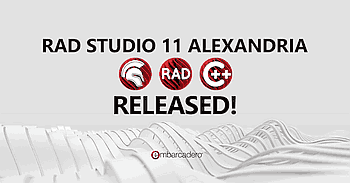For several units of our framework, we allow late-binding of data
values, using a variant and direct named access to
properties:
- In SynCommons, we defined our TDocVariant custom
variant type, able to store any JSON/BSON document-based content;
- In SynBigTable, we use the TSynTableVariantType custom
variant type, as defined in SynCommons;
- In SynDB, we defined a TSQLDBRowVariantType, ready to
access any column of a RDBMS data result set row;
- In mORMot, we allow access to TSQLTableRowVariantType
column values.
It's a very convenient way of accessing result rows values. Code is still
very readable, and safe at the same time.
For instance, we can write:
var V: variant;
...
TDocVariant.New(V); // or slightly slower V := TDocVariant.New;
V.name := 'John';
V.year := 1972;
// now V contains {"name":"john","year":1982}
This is just another implementation of KISS design in our framework.

Since Delphi XE2, some modifications were introduced to the official
DispInvoke() RTL implementation:
- A new
varUStrArg kind of parameter has been defined, which
will allow to transmit UnicodeString property values;
- All text property values would be transmitted as BSTR
/ WideString /
varOleStr variants to the invoked variant type;
- All textual property names were normalized to be in UPPERCASE.
Those modifications are worth considering...
And we may have discovered two regressions: one about speed, and the other
about an unexpected logic bug...








